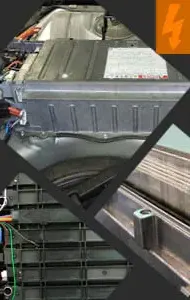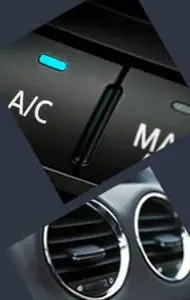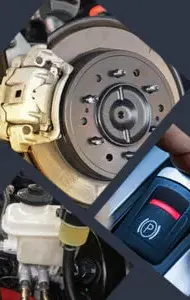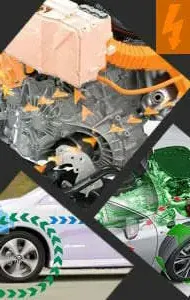High-Voltage Battery (REESS)

Course Overview
The high voltage batteries are the heart of electric cars, as the internal combustion engine is to a conventional vehicle. This is the most expensive component of the vehicle, about 25% of the total price. The batteries are responsible for storing the energy when it is charged through the external electricity grid or the electric machine during regenerative braking, and for supplying the electric motor with the power and energy necessary for the vehicle’s performance requirements. It is a high-voltage item that has more internal components and the diagnosis of faults and repairs are not straightforward.
The main aims of this course are:
- To study the materials that have been used throughout the history of accumulators intended for the automotive sector.
- To carry out an in-depth study of the internal structure of high-voltage batteries (REESS).
- To know the basic magnitudes and characteristics of high-voltage batteries (REESS).
- To analyse the internal components of the high-voltage battery and their operation.
- To understand the chemical reactions that occur in the lithium-ion cells during discharging and charging.
- To use different measuring tools that are used on electric vehicles to diagnose faults.
- To master the maintenance, verification, adjustment and repair processes of high-voltage batteries (REESS).
- To manage the processes of removal from the vehicle and dismantling of the high-voltage battery.
Course Topics
1.- Characteristics and magnitudes of high-voltage batteries
1.1.- Types of batteries and technical characteristics
1.2.- Magnitudes of the high-voltage batteries
1.3.- Series and parallel connections
1.4.- Test of knowledge
2.- The high-voltage battery
2.1.- Internal structure
2.2.- Lithium-ion cells
2.3.- Junction box
2.4.- Harmonics filter
2.5.- Sensors
2.6.- Safety elements
2.7.- Electronic control unit (BMS)
2.8.- Thermal control of the high-voltage battery
2.9.- Voltage control of the high-voltage battery
2.10.- Test of knowledge
3.- Maintenance, diagnosis and checking of high-voltage batteries
3.1.- Measuring and control equipment
3.2.- Maintenance of high-voltage batteries
3.2.1.- Faults in cells/bricks/modules
3.2.2.- Faults In other high voltage battery components
3.2.3.- Current leakage faults
3.2.4.- Cell balancing
3.3.- Test of knowledge
4.- Removal and fitting of the high-voltage battery in electric vehicles
4.1.- Removal and dismantling of the batteries
4.2.- Reconditioning and recycling the batteries
4.3.- Test of knowledge
5.- Related videos
5.1.- Lithium ion batteries
5.2.- Checking the voltage of the high-voltage battery modules
5.3.- BMS parameters
6.- Self-assessment
6.1.- Self-assessment
Average Duration
5 hours 32 minutes
Access This Course
Get access to this course and 30+ more topics by subscribing.
Subscribe to Access All Online Courses
We provide access to all of our online courses for 12 months with a one-time purchase.
£199 ex.VAT per year


